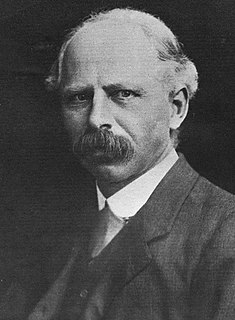A Quote by Henry Hazlitt
Precisely because the State has the monopoly of coercion it can be allowed the monopoly only of coercion. Only if the modern State can be held within a strictly limited agency of duties and powers can it be prevented from regimenting, conquering, and ultimately devouring the society which gave it birth.
Related Quotes
Briefly, the State is that organization in society which attempts to maintain a monopoly of the use of force and violence in a given territorial area; in particular, it is the only organization in society that obtains its revenue not by voluntary contribution or payment for services rendered but by coercion.
The function of State coercion is to override individual coercion, and, of course, coercion exercised by any association of individuals within the State. It is by this means that it maintains liberty of expression, security of person and property, genuine freedom of contract, the rights of public meeting and association, and finally its own power to carry out common objects undefeated by the recalcitrance of individual members.
A state is absolute in the sense which I have in mind when it claims the right to a monopoly of all the force within the community, to make war, to make peace, to conscript life, to tax, to establish and disestablish property, to define crime, to punish disobedience, to control education, to supervise the family, to regulate personal habits, and to censor opinions. The modern state claims all of these powers, and, in the matter of theory, there is no real difference in the size of the claim between communists, fascists, and Democrats.
Convictions following the admission into evidence of confessions which are involuntary, i.e., the product of coercion, either physical or psychological, cannot stand. This is so not because such confessions are unlikely to be true but because the methods used to extract them offend an underlying principle in the enforcement of our criminal law: that ours is an accusatorial, and not an inquisitorial, system - a system in which the State must establish guilt by evidence independently and freely secured, and may not, by coercion, prove its charges against an accused out of his own mouth.
Think of civil society and the state as joined in a marriage of necessity. You already know who the wife is, the one who is supposed to love, cherish and obey: that's civil society. Think of the state as the domineering husband who expects to have a monopoly on power, on violence, on planning and policymaking.
A license cannot be revoked because a man is red-headed or because he was divorced, except for a calling, if such there be, for which red-headedness or an unbroken marriage may have some rational bearing. If a State licensing agency lays bare its arbitrary action, or if the State law explicitly allows it to act arbitrarily, that is precisely the kind of State action which the Due Process Clause forbids.







































